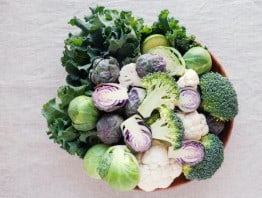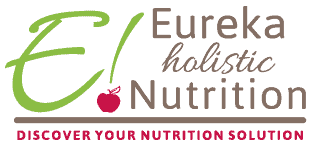Food gives us a framework to know God
PART 2 – Cruciferous Vegetables
God reveals Himself to us in many ways, food is just one of those ways. In Part 2 of Pictures of God in Food, we take a look at the family of foods called cruciferous vegetables. These vegetables belong to the Brassicaceae family and are known for their nutrient density and disease-fighting compounds and include:
- Broccoli
- Cauliflower
- Cabbage (green, red, Napa, savoy)
- Brussels sprouts
- Kale
- Bok choy (Chinese cabbage)
- Collard greens
- Turnips (roots and greens)
- Radishes
- Arugula
- Watercress
- Mustard greens
- Horseradish
- Rutabaga
- Daikon radish
- Wasabi
- Kohlrabi
🌱 Top 10 Health Benefits of Cruciferous Vegetables
This specific food group is uncontested in the nutrition space for being healthy, and there is very little dispute around whether we should eat cruciferous vegetables because of these benefits:
.
1. Cancer Prevention
- Contain glucosinolates, which break down into sulforaphane and indole-3-carbinol, compounds shown to reduce the risk of several cancers (especially breast, prostate, lung, and colorectal).
- Help detoxify carcinogens and inhibit tumor growth.
2. Detoxification Support
- Activate phase I and II liver detox enzymes, enhancing the body’s ability to eliminate toxins and harmful compounds.
3. Hormonal Balance
- Especially beneficial for estrogen metabolism. Indole-3-carbinol helps convert estrogen to its protective form, supporting breast and reproductive health.

4. Anti-inflammatory Effects
- High in antioxidants like vitamin C, beta-carotene, and flavonoids, which reduce inflammation and oxidative stress.
5. Cardiovascular Health
- Rich in fiber, which helps lower cholesterol.
- Antioxidants reduce arterial plaque and improve blood vessel function.

6. Gut Health
- Excellent source of fiber and prebiotic compounds, which feed beneficial gut bacteria and support regular bowel movements.
7. Immune Support
- Provide vitamin C, vitamin A, and other phytonutrients that strengthen immune defenses.
8. Bone Health
- Contain vitamin K, calcium, and magnesium, which support strong bones and may reduce the risk of osteoporosis.

9. Weight Management
- Low in calories, high in fiber and water, helping to promote fullness and reduce overall calorie intake.
10. Blood Sugar Regulation
- Help stabilize blood glucose by slowing digestion and improving insulin sensitivity.



The Picture of God in Cruciferous Vegetables
Cruciferous vegetables get their name from the Latin word “cruciferae”, which means “cross-bearing.”
This name refers to the shape of their flowers: The flowers of cruciferous plants typically have four petals arranged in the shape of a cross (crucifix).

These plants belong to the Brassicaceae family (also formerly called Cruciferae).
But the most amazing nutritional significance of these vegetables is the fact that their nutrients (nutritional value) is MOST healthful to us when they are CRUSHED.
“He was wounded for our transgressions, He was crushed for our iniquities. The chastisement of our peace was upon Him, and by His stripes we are healed.” – Isaiah 53:5
This prophetic description of Christ’s sacrifice on the cross – His crushing = our spiritual nourishment.
Cruciferous vegetables are healthy. But, they need to be lightly cooked, chopped, chewed before the physical health benefit is experienced!
In the same way Jesus’ suffering on the cross brings spiritual life/healing to all who “consume it” – BELIEVE. The same physical benefits of cruciferous veggies…
- Disease prevention
- Detoxification (Cleansing)
- Heart Health
- And more!!
Can also reveal the spiritual healing in Christ through faith in His cross-bearing crushing.
- Prevention of sin’s consequences
- Cleansing
- Heart healing
- And more!!
Let’s remember the truth of the Gospel the next time you eat broccoli!!

